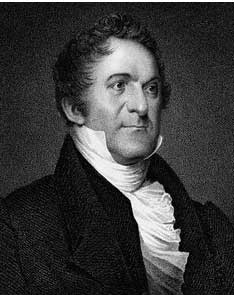Wirt, William

Wirt, William (1772-1834) Attorney-General: William Wirt was born on November 8, 1772, in Bladensburg, Maryland. Having completed grammar school, he studied law. After being admitted to the bar in 1792, he set up a practice in Culpeper County, Virginia. A writer as well as a lawyer, he published a series called "Letters of the British Spy" in 1803. When he was assistant attorney in prosecuting Aaron Burr for treason in 1807, he showed a high degree of learning and eloquence. The exposure resulting from the trial established his reputation as one of the top US lawyers. In 1817, President Monroe appointed him Attorney General, and Wirt served through Monroe's term and on through to the end of John Quincy Adams' term. Wirt was involved with some of the most important cases of the early national period, including McCulloch v. Maryland, Gibbons v. Ogden and Dartmouth College v. Woodward. He helped establish systematic methods for the Attorney General's department. he was the first to preserve his opinions to be used as precedents for future decisions. In 1832, he was the Presidential candidate of the Anti-Masonic Party, but the Anti-Federalists refused to chose him as their nominee. Wirt died in Washington, D.C., on February 18, 1834.
